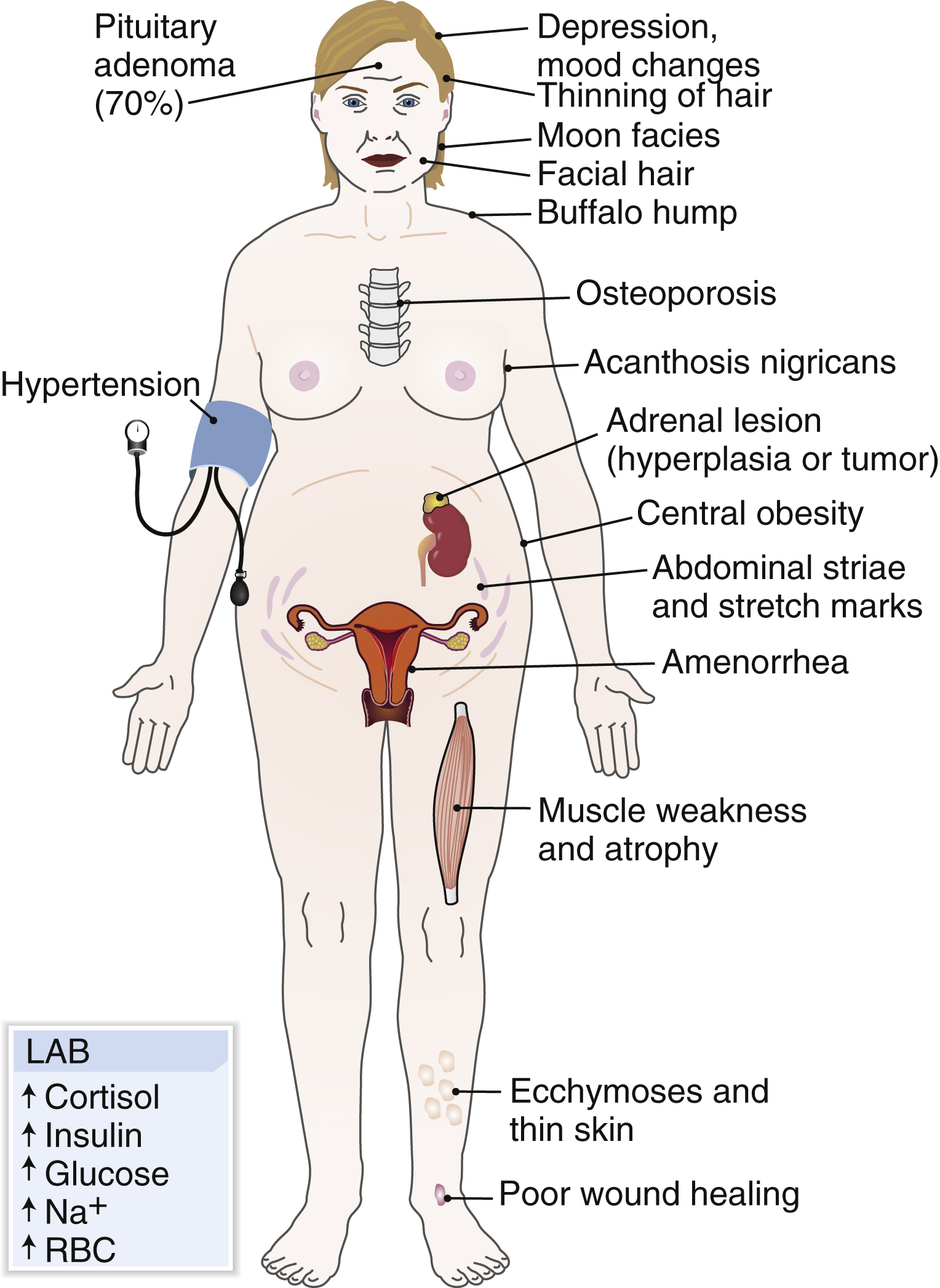Cushing’s syndrome [Harvey W. Cushing] , a metabolic disorder resulting from the chronic and excessive production of cortisol by the adrenal cortex or by the administration of glucocorticoids in large doses for several weeks or longer. When occurring spontaneously, the syndrome represents a failure in the body’s ability to regulate the secretion of cortisol or adrenocorticotropic hormone (ACTH). (Normally cortisol is produced only in response to ACTH, and ACTH is not secreted in the presence of high levels of cortisol.) The most common cause of the syndrome is a pituitary tumor that increases secretion of ACTH. Also called hyperadrenocorticism. See also Addison’s disease, Cushing’s disease, Nelson’s syndrome. ▪ OBSERVATIONS: Characteristically the patient with Cushing’s syndrome has a decreased glucose tolerance; central obesity; round “moon” face; supraclavicular fat pads; an overhanging, striae-covered pad of fat on the chest and abdomen; buffalo hump; scant menstrual periods or decreased testosterone levels; muscular atrophy; edema; hypokalemia; and some degree of emotional change. The skin may be abnormally pigmented and fragile; minor infections may become systemic and long-lasting. Children with the disorder may stop growing. Hypertension, kidney stones, and psychosis may also occur. ▪ INTERVENTIONS: The objective of all treatment is decreased cortisol secretion. The source of the excess ACTH is discovered by a series of tests that challenge the function of the adrenal and pituitary glands. If the excess ACTH is caused by an adenoma of the anterior pituitary, irradiation or surgical excision of the tumor corrects the condition. If the condition is the result of medication, decreasing or changing the dosage may alleviate the symptoms. ▪ PATIENT CARE CONSIDERATIONS: Care of the hospitalized patient with Cushing’s syndrome is similar to that of patients with Addison’s disease, Cushing’s disease, and other endocrinological disorders. Weight and electrolyte and fluid balance are monitored, an adequate balanced diet is urged, and emotional changes are observed with a goal of maintaining emotional equilibrium.

